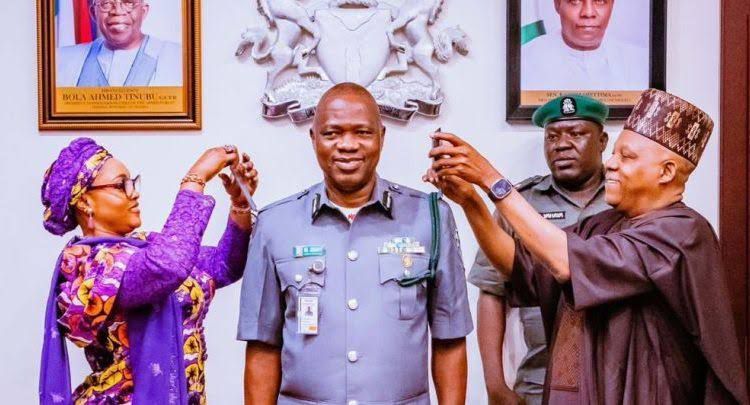
Elizabeth Toyon and Maria Yusuf xray the leadership of Bashir Adewale Adeniyi as Nigeria’s number one customs officer, concluding that his achievements earned him an extension of service approved by President Bola Tinubu.
The extension of Bashir Adewale Adeniyi’s tenure as Comptroller General of Customs by one year is unarguably a result of the impact of his leadership, the reforms he has initiated, and the trajectory of the Service under his watch. Since assuming the mantle in mid‑2023, his tenure so far has been marked by bold reforms, strategic modernisation, and a people-oriented approach.
Adeniyi has brought to the position a wealth of experience, a reputation for professionalism, and a clear reformist agenda since his appointment in June 2023. He came on board when when the NCS needed modernisation, enhanced revenue generation, and improved inter-agency cooperation amid growing security and economic challenges.
Under his watch, the NCS has consistently surpassed revenue targets, as a result of the enhanced compliance mechanisms, better use of technology, and streamlined operational procedures.
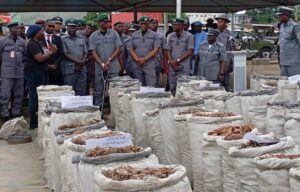
Under Adeniyi’s leadership , Nigeria Customs Service achieved a record-breaking revenue collection of N6.1 trillion in 2024, exceeding its target of N5.07 trillion. This represents a 90.4% increase compared to the N3.2 trillion collected in 2023.
The service generated ₦1,751,502,252,298.05 for the first quarter of 2025. The service quarterly benchmark of ₦1.645 trillion, surpassed expectations by over ₦106 billion, achieving a 106.47% performance rate.
A core pillar of Adeniyi’s vision has been the digitisation of customs operations. The ongoing migration to a paperless and fully automated customs clearance system is a milestone that future administrations will build upon. Key projects include the termination of the Nigeria Integrated Customs Information System (NICIS II) and the introduction of advanced data analytics .
Most iconic was the interception in August 2024, in collaboration with the Wildlife Justice Commission, of 9,493 kg of pangolin scales the largest seizure of its kind globally since January 2020. The operation spanned Kano/Kaduna and Lagos, involved four arrests, and signaled Nigeria’s readiness to confront wildlife trafficking at a continental level .

In 2024 alone, customs seized 397 vehicles valued at ₦5.64 billion, as part of 3,555 seizures whose total DPV doubled year‑on‑year to ₦35.29 billion. This included 40 seizures of pharmaceutical products worth ₦3.04 billion, nearly 76 wildlife contraband seizures valued at ₦5.93 billion, 183,527 bags of imported rice, and over 1.7 million litres of petroleum products smuggled across borders .
Pharmaceutical enforcement is equally notable. In July 2025, the NCS intercepted 25 containers of counterfeit and unregistered drugs with a duty-paid value of ₦9.23 billion handing them over to NAFDAC under a coordinated health-security framework.Earlier, in August 2024, Apapa Area Command seized 12 containers of expired pharmaceuticals worth ₦1.8 billion, revealing tens of thousands of illicit Tramadol, codeine, and other mismarked substances, highlighting the public health dimension of customs enforcement . In May 2025, a follow‑up interception included expired drugs, drones, and telecom devices valued at ₦921 million, many smuggled without end‑user certificatesa sign of growing technological contraband networks .
It is worthy of note that the launched B’Odogwu, a new Unifed Customs Management System, starting with a pilot phase in Lagos at Port & Terminal Multi-Services Limited (PTML) command.
Adeniyi also launched the Time Release Study (TRS) at the Tin-Can Island ports command. The TRS is a strategic and internationally recognised tool designed to improve trade facilitation and efficiency at ports. Its implementation which was aimed to promote trade facilitation in line with global standards, has optimised the clearance process and assisted stakeholders in enhancing their operations. By streamlining procedures and reducing clearance times, the TRS has contribute to a more efficient and effective port environment.
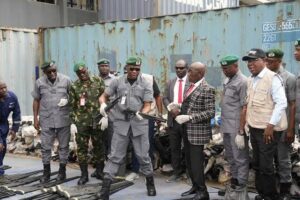
The NCS has also taken proactive steps to effectively implement the African Continental Free Trade Area (AfCFTA) initiative. To achieve this, the service implemented trade facilitation policies and other measures to encourage local companies’ participation. Key initiatives included training officers on advance ruling, which commenced in July 2024, and promoting the Authorised Economic Operators (AEO) program.
The AEO program, driven by the World Customs Organisation (WCO) and the World Trade Organisation (WTO), which recognises compliant businesses that meet specific security and compliance standards, enabling them to participate in the smooth movement of goods.
The establishment of specialised units like the Border Drill and the Strike Force has enhanced enforcement capabilities. These units, empowered with better intelligence and mobility assets, have dismantled several smuggling networks and contributed to national security efforts.

In response to the evolving nature of cross-border crimes, the Adeniyi-led NCS has improved inter-agency coordination with the National Drug Law Enforcement Agency (NDLEA) , Immigration Service, and other security agencies. Notably, partnerships with international customs organizations have also been deepened to combat transnational smuggling and fraud.
Another key area where Adeniyi has made strides is stakeholder engagement. By maintaining an open-door policy and encouraging dialogue with port operators, freight forwarders, importers, and clearing agents, the NCS under his leadership has improved public trust and reduced friction in customs operations.
The CGC has also been active in public communication ensuring that the Service is transparent in its activities and regularly updating the media and public on key developments. His approachability and responsiveness have helped change the perception of the Customs Service from an opaque bureaucracy to a modern, service-oriented institution.
His election as Vice Chairperson of the World Customs Organization for the West and Central Africa region is a testament to the respect he commands among peers. This role has allowed Nigeria to play a more central role in shaping regional customs policies, especially in the context of Africa Continental Free Trade Area (AfCFTA) implementation and cross-border facilitation strategies.
Through the “Customs Cares” program, a Corporate Social Responsibility (CSR) initiative introduced by Adeniyi, the NCS has recently undertaken projects like renovating schools and healthcare centers in Lagos and providing educational materials and free medical services in Katsina, among other initiatives.







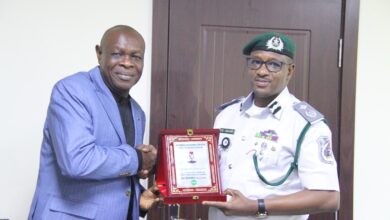
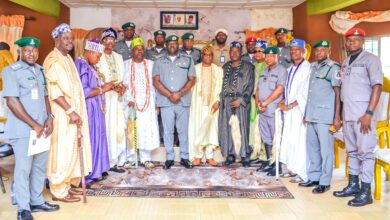



uek014
adrthj
ywsxp8